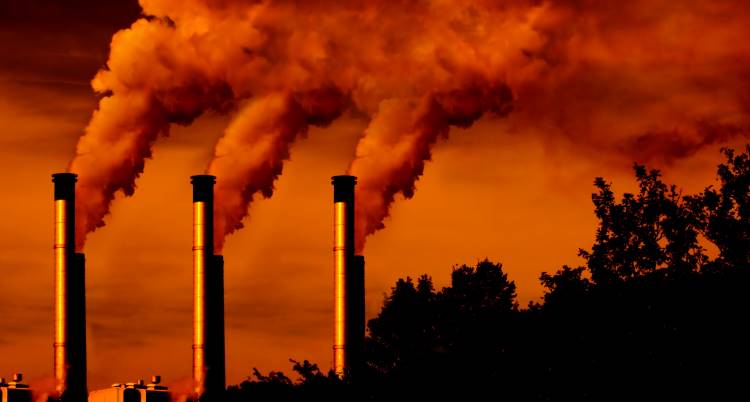IMF: Markets are Ignoring Climate Crisis

The International Monetary Fund (IMF) has said that natural disasters have been largely ignored by equity markets for the past 50 years and that more stringent rules need to be created to notify investors of the risks posed by the climate emergency to their investments.
In its most recent global financial stability report (GFSR), the IMF said that a voluntary approach is not adequate, and that companies should be forced to divulge information on their exposure to climate risk.
Former Bank of England governor Mark Carney leads the Task Force on Climate Related Financial Disclosures. The initiative outlines how exactly companies should gauge and report their level of exposure.
However, the IMF said last week that climate risk should be part of the reporting standards internationally.
“An increasing number of firms have begun to voluntarily disclose climate change risk information, in line with the recommendations set out by the taskforce on climate-related financial disclosures,” said the IMF.
“However, going further by developing global mandatory disclosures on material climate change risks would be an important step to sustain financial stability. In the short term, mandatory climate change risk disclosure could be based on globally agreed principles. In the longer term, climate change risk disclosure standards could be incorporated into financial statements compliant with international financial reporting standards.”
According to the IMF, unless stronger action is taken, global temperatures will rise by a total of 3C. Temperatures are currently 1.1C above pre-industrial levels.
“Climate change induced by this level of warming is, in turn, expected to adversely impact the world’s stock of natural assets, lead to a significant rise in sea level, and increase the frequency and severity of extreme weather events,” said the IMF.
“As the frequency and severity of climatic hazards rise, the resultant socio-economic losses could be significantly higher than in recent history.”
Despite this, the GFSR states that there is little evidence to suggest that investors have any increased awareness of the losses they could face if temperatures continue to rise.
“While projections of climatic variables and their economic impact are subject to a high degree of uncertainty, aggregate equity valuations as of 2019 do not appear to reflect the predicted changes in physical risk under various climate change scenarios”, said the IMF.
“This suggests that equity investors may not be paying sufficient attention to climate change risks.”
Read on our blog

With the government poised to implement tough new measures to...

Budget broadband provider TalkTalk has been notifying customers via email...

A year-long investigation by charity Citizens Advice has revealed a...

Education Secretary Nadhim Zahawi has announced a new commitment to...
